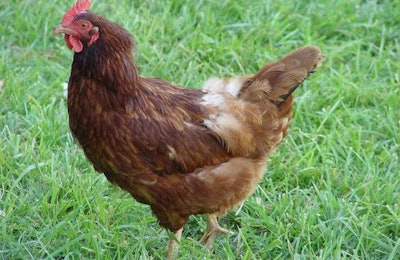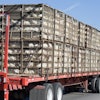
There’s something very gratifying about owning your own farm animals and producing your own food. As the backyard poultry craze continues in the U.S., you can see that many people think that way.
However, when health and safety are compromised, maybe raising your own chickens isn’t such a good idea.
According to a July 19 report from the U.S. Centers for Disease Control and Prevention (CDC) 611 people in 45 U.S. states have become ill from Salmonella infections that are linked to live poultry in backyard flocks. That number very well may have climbed since that report was filed.
USDA Radio News did a couple of segments addressing Salmonella and backyard flocks, with comments from Dr. Jacquie Jacob, University of Kentucky extension poultry specialist.
According to Jacob, a lot of backyard poultry owners don’t have any type of background or education in animal agriculture, and don’t realize that most birds naturally have Salmonella in their systems.
“It’s next to impossible to prevent Salmonella from entering into your flock,” she said. “You have to assume that your birds have Salmonella, of a type that can make you sick.”
To many, the chickens become pets, and she advises that people who do handle their chickens should always wash their hands after doing so. She also cautions to keep children who are still sucking their thumbs away from the birds, and to not let the chickens into their houses.
Is message reaching the right audience?
I was glad USDA Radio News did the segments, but I wondered if the message was reaching the right people. For those in production agriculture – particularly those in the commercial broiler and/or egg industries where safety, sanitary and biosecurity practices are strictly followed – the risks of Salmonella are pretty well-known. My guess is that more people who are familiar with poultry science are hearing this message than those who are not. Getting the message to people with a good working knowledge of poultry is preaching to the choir, so to speak.
As more and more cities are adopting ordinances to allow backyard chickens within the city limits, it is hard to tell how many more uneducated people will hop on with this trend and say “I want to raise my own eggs.”
Jacob is doing the right thing in educating the public about the risks of backyard poultry and Salmonella. I can only hope more extension agents, particularly in communities that are seeing a boom in backyard flocks, will work to get the word out. Whether it is cooperating with local media for reports on raising backyard poultry safely, or hosting programs and seminars on the subject, I’d encourage all in extension or other agricultural related organizations to do so.
But it will still take everyone’s effort.
Odds are, you know someone who has a backyard flock. Hopefully, they are all taking the proper precautions. However, if you fear that person’s health or a family member’s health could be at risk because they are not, please forward the link to this blog along, and make sure they are aware of the links inside the blog to Jacob’s radio comments and the CDC report which also offers precautions for backyard poultry owners to take.


















